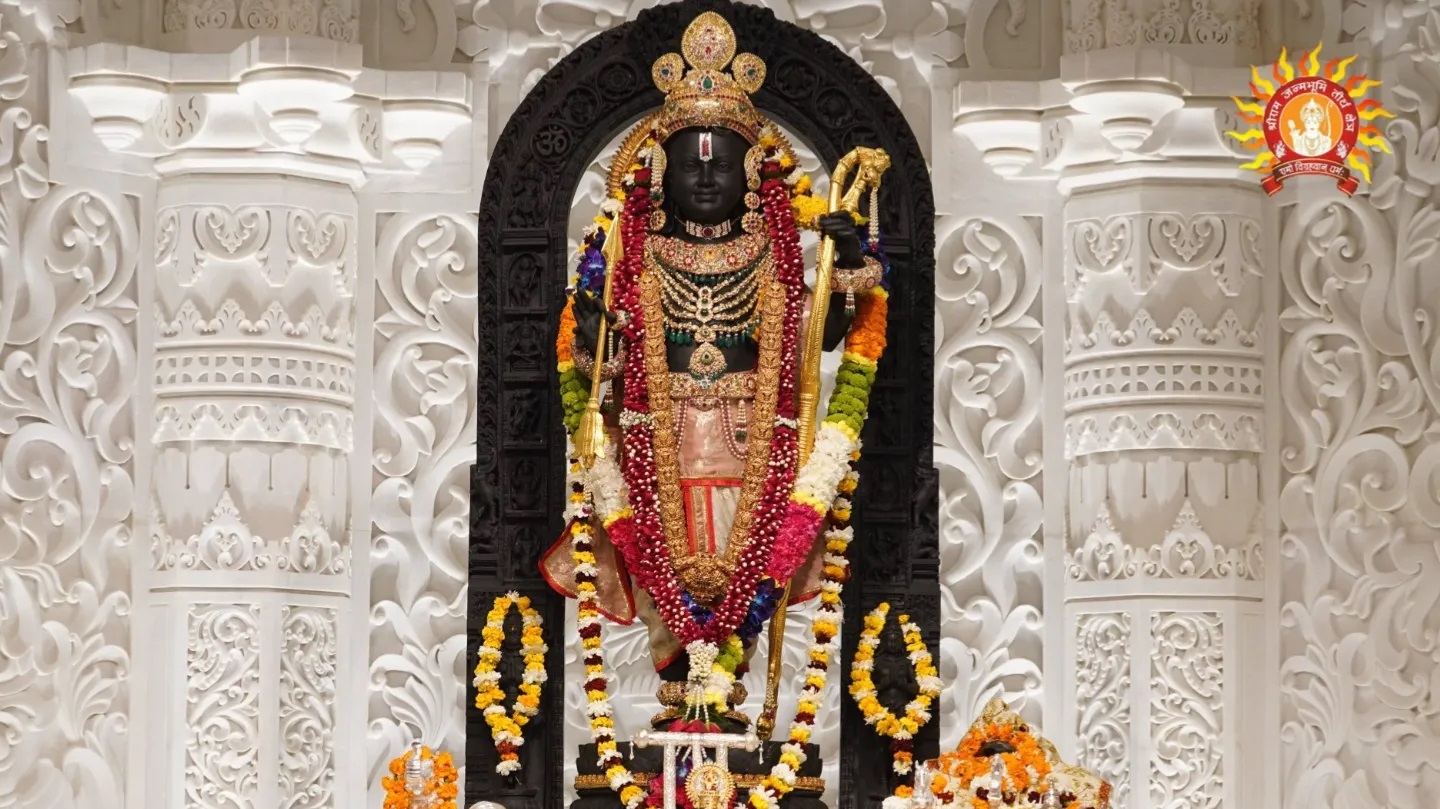
The consecration of Shri Ram Lalla idol at the newly reconstructed Shri Ram temple in Ayodhya, immediately before the 75th Republic Day heralds the beginning of a new epoch in Indian history. In some ways it resembles the 26th January 1930 when, though reluctantly, Indians embraced the inevitable, their destiny as a republic completely independent of the distant Kingdom of England. Indians, were able to finally overcome the inhibitions imposed upon them by a worldview of which they did not play a part in shaping. Indians declared, in no uncertain words, that this great civilization could no longer remain a subservient party to the unequal relationship it shared with a strong yet quite recent and smaller power. And they rejected this relationship even in its most nominal form of dominion status or self rule within the British empire.
It was not long before the Constituent Assembly adopted the Objective Resolution in 1946 ‘to proclaim India as an Independent Sovereign Republic’ so that ‘this ancient land attains its rightful and honoured place in the world.’ Finally India attained freedom on 15th August 1947 and the country became Independent Sovereign Republic on 26th January 1950. Indian Republic offered the masses hopes and instruments for the Social, Political and Economic justice, Equality and Liberty and envisaged fraternity among them based on modern values of secularism, citizenship and unity of the nation. The emancipation coupled with liberty brought upon by the Indian Constitution, in the context of historical social injustice and suppressed national pride, is almost unparalleled in human history.
As there was a 1950 following a courageous 1930, there shall come a time ‘when the soul of this civilization will find unshackled utterance.’ But the question remains what will this utterance look like? Is it going to be an era of triumphant and omnipresent nationalism? In my opinion, Indians have already discovered the confidence to deal with the world and this will be sustained here onwards naturally. It is the Indian pursuit of universal wellbeing and harmony that will characterize this era and guide the humanity towards peace, prosperity, happiness and ultimately ‘Kalyan‘. But for that to happen India had to reassert and reestablish herself as her true-self. This is exactly what we did on 22nd January 2024.
Although we take pride in our pursuit of universal wellbeing through Indic values, we must not forget and discard the fact that certain Western values like Rule of Law enabled the resuscitation of this civilization. Much of the physical violence inflicted upon Indians and their cultural heritage during pre-colonial times was a result of concentration of power in the hands of individuals who drew justification and inspiration from a value system completely foreign to India. They used their monopoly over physical power without any regard or appreciation for civilizational and spiritual greatness of this land and cultural sensibilities of their subjects. In the face of brute violence by the state there was no avenue for Indians to make themselves heard. It was the British Raj, however unjust and exploitative, which introduced the concept of Rule of Law after centuries of absolutism in this land. And as the western ascendancy itself was guided by spirit of enquiry their perception of India was not completely colored by blind hatred or disrespect as was the case in pre-colonial times. As the Republic inherited rule of law from the British Raj, Consecration on 22nd January was made possible by a prolonged due process of law and not merely by the fact that ‘Hindus are the majority and hence have monopoly over the power’. In the times to come Rule of Law enjoined with the spirit of Dharma should inform our conscience.
There are people, sensible people who don’t indulge in usual rhetoric, who have expressed concerns about gains of liberty and justice accrued through the Republican Polity getting eroded in the Rashtra phase of our national life. We can not simply dismiss them as being unsubstantiated. There are numerous examples world over, specially among the nation states of Europe, where unbridled and soul-less nationalism has led to degeneration and ultimate destruction of the societies. For the Bharatiya Rashtra to become an everlasting presence it is important to filter the ideas of nationalism and economic progress we absorb from the rest of the world and build more on Indian values. It is very important that rulers are held accountable to the values of Dharma and Indianness. It is important to inculcate the basic values of Indianness like kindness, universal well being and righteousness in the generations to come and make them aware of the weaknesses which led to repeated subjugation of this nation.
Above all, the progressives will have to re-evaluate their relationship with Indianness. Bharatiyata or Indianness in itself is an inherently progressive thought and not a mere translation of borrowed idea of narrow minded nationalism. As the Prime Minister underlined in his speech on 22nd January, “Ram is not only ours, Ram is for everyone”, it is important to underscore the importance of Ram of Kabir, Ram of Raidas along with Ram of Tulasidas. We have to think, define and fight for the progressive ideas of inclusion and justice in the framework of Indianness. In fact this struggle and its success alone will decide the success of Independent Indian Rashtra. An exclusionary and unjust social system as characterized by the caste has done immense damage to Indian nationhood and an honest attempt to address this, as the one attempted by Gandhiji, will ensure that the Bharatiya Rashtra is eternal.
Founder.